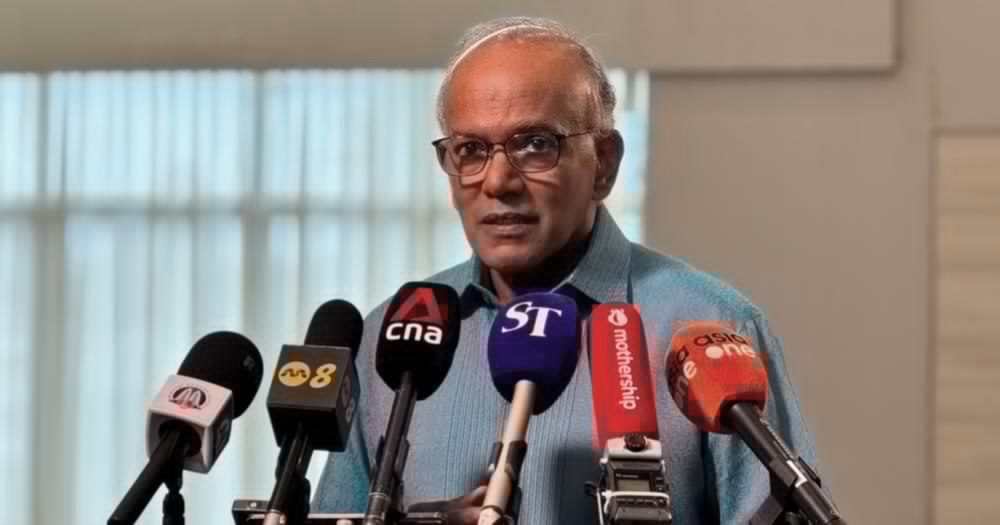Singapore's security is closely tied with that of Malaysia's, and due to our proximity, what happens in Malaysia will have an impact on Singapore's security landscape, Home Affairs and Law Minister K Shanmugam said on Jun. 28.
The minister was speaking at a doorstop pertaining to the recent incident in Malaysia, which involved the arrest of eight people on Jun. 22 and 23 on suspicion of links to terror groups Daesh and the Islamic State (IS).
The Malaysian government also identified possible threats against the Malaysia Agong (king), Sultan Ibrahim Iskandar and Prime Minister Anwar Ibrahim.
Singapore works closely with Malaysia and shares intelligence
Shanmugam added that currently, more than 460,000 travellers cross the border between Singapore and Malaysia daily.
The government therefore addresses security issues related to cross-border travel in two ways.
The first method is through the checks conducted by the Immigration and Checkpoints Authority (ICA) at the borders.
"Sometimes, when it takes some time, people have to understand this a matter of security, it is serious," he said.
The second method is the government's "very close" cooperation and intelligence sharing with a variety of foreign partners, including the Malaysian police intelligence agency, the Malaysian Special Branch (MSB).
Referring to Singapore's partnership with the MSB, Shanmugam added:
"That is very important to deal with current as well as emerging threats, and (the) ISD (Internal Security Department) has always been, and continues to be in close contact with the MSB."
According to Shanmugam, the actions of the MSB against terrorist suspects have helped "significantly" in mitigating the threat of terrorism to Singapore and the region.
IS ideology continues to resonate in the region, including in Singapore
Shanmugam also noted that the violent ideology of IS continues to resonate in the region and is fuelled by a virtual network of supporters.
Extremist narratives have radicalised many individuals, including in Singapore, he added.
As long as these ideologies persist, they will continue to inspire attacks.
The minister cited Singapore's past experience with the terrorist group, Jemaah Islamiyah (JI), with its members meeting in Malaysia after Singapore conducted its first wave of arrests against the group in December 2001.
"They wanted to plan retaliatory attacks against Singapore. And we remain a very important target for terrorists," he said.
Singaporeans must remain vigilant
Within Singapore, Shanmugam said that 50 self-radicalised individuals have been picked up since 2015, with 38 of them Singaporeans and 12 of them foreigners.
This is part of the government's zero-tolerance approach towards terrorism and violent extremism, he added.
In addition, while the government will do its best to detect and prevent any terrorist attack through the police, security departments and other agencies, Singaporeans should also play their part in being vigilant and looking out for suspicious activities.
"We have to be alert as Singaporeans...If you find anything, report them to the authorities," he said.
Top photo by Mothership
If you like what you read, follow us on Facebook, Instagram, Twitter and Telegram to get the latest updates.



